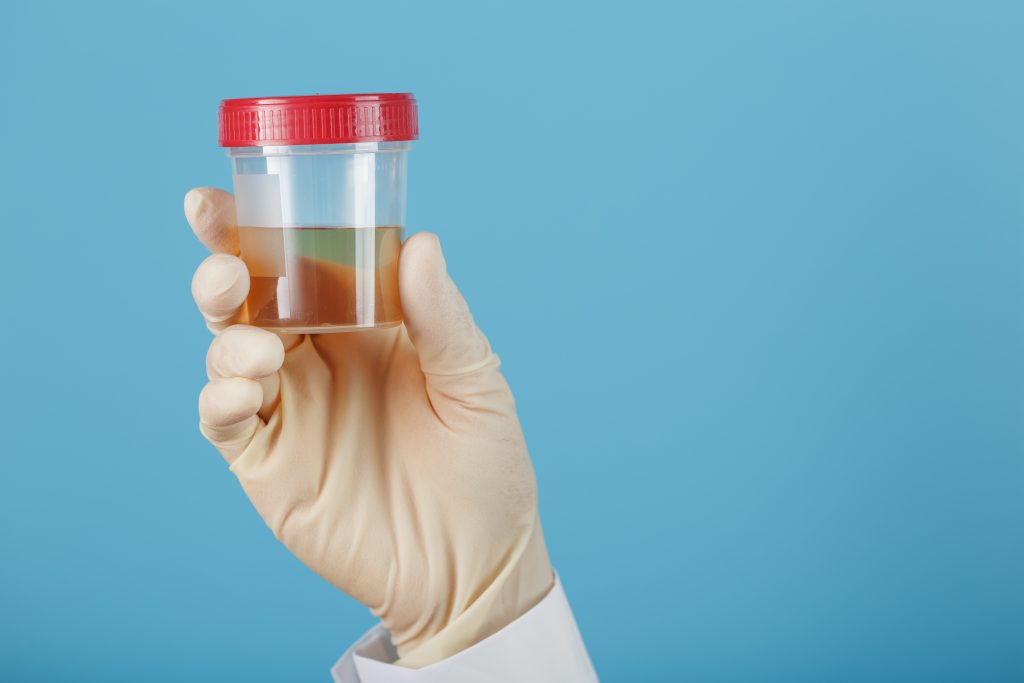- Fast results
- 4,000+ locations
- 4.8 star rating
Need Help? (888) GET LABS



When doing number one in the toilet, paying attention to your urine smell is inevitable.
Although it’s pretty expected that urine odor seeps into your olfaction every now and then, if the scent is too strong, it can be worrying.
The smell of your urine can provide various health information such as a certain disease or health condition, your body’s reaction to a medicine, the food and drinks you consume, and your water intake.
In most cases, smelly urine poses no threat as it could simply result from metabolic adjustment. However, when the odor is too pungent or unusual, it could suggest a serious illness requiring immediate medical attention.
With that, it’s always best to know what your urine smell might be telling you. So, read on and learn more about the meaning of your urine odor.
The unusual, typically strong smell of your urine can be attributed to factors like water intake, food and beverage consumption, medication, pregnancy, and some medical conditions.
Evidently, these factors alter the ratio of the concentration of waste products and water in urine. Likewise, they provide irregular chemicals producing a strong urine smell.
Nevertheless, check out how these factors affect the scent of your odor.
Water is an essential component that dilutes the wastes in your urine.
Hence, if you are dehydrated, it only makes sense that your pee becomes concentrated with the excreted body chemicals. As a result, it produces a pungent smell like ammonia.
The digestion of certain food and drink component can also later your urine smell.
For instance, if you have eaten asparagus, garlic, or onion, expect that your urine may become odorous to some degree.
Likewise, alcohol and coffee can also affect your urine, especially if coupled with dehydration.
Medicines for particular health conditions can also interact or produce chemicals that cause your urine to smell. These medications can be prescribed to patients diagnosed with diseases like diabetes and rheumatoid arthritis.
Moreover, supplements for vitamin deficiencies like vitamin D and B can trigger a stronger urine smell.
Many pregnant women observe changes in their urine smell as the pregnancy progresses. This could be due to urinary tract infection aggravated by when the urinary bladder gets squeezed by the enlargement of the uterus.
Also, it can be linked to changes in their diet and intake of prenatal vitamins.
Sometimes pungent urine indicates an illness or health condition.
For example, kidney disease may lead to more concentrated urine producing a noticeable strong urine smell.
In the same way, liver disease can cause musty-smelling urine considering the organ is directly involved in waste or toxin removal.

The only time you should worry about your smelly urine is when it occurs frequently, and it comes with other symptoms like painful urination, odd coloration, fever, digestive distress, etc.
If the cause of the odor is due to food consumption, or dehydration, drinking more water usually does the trick.
However, if the smell does not diminish after sufficient water intake, you can consult your doctor to find other probable factors causing the odor.
Given that urine smell provides clues to your health conditions, it’s always beneficial to pay more attention to this detail. But you have to detect the line between urine smell as a natural body response or an indicator of a serious health condition.
You may compare your urine smell to a particular scent. By the least, you could easily sense ammonia from your urine but in varying degrees. In some cases, you may smell something fruity or rotten which can be quite odd.
Check out the meaning of your urine smell.
From time to time, your urine will produce a strong ammonia odor. It is usually accompanied by amber urine color.
If your pee smells like ammonia, it could suggest that the waste was not diluted, leading to more concentrated urine.
It’s a curious experience when you smell a sort of fruit bouquet or sugary scent from your pee. While the smell is mostly not as unpleasant as other urine odors, it’s certainly not good news.
Urine that smells sweet indicates excessive sugar or glucose, infection, or protein residuals.
Sometimes your urine might smell sulfuric, almost reminiscent of a rotten egg.
While it is undeniably alarming sensing this pungent chemical odor, the reason behind it ranges from odd food combinations to an underlying infection or health issues.
Hence, it is imperative to take note of other symptoms so you can gauge the severity of the condition.
When your urine smells like fish, it will undoubtedly put a huge cloud on your day. But if the cause of the odor is diet-related or lack of hydration, you can expect that the smell is only temporary.
On the other hand, if it remains consistent along with other symptoms, you may want to consult your doctor as soon as possible.
You can treat smelly urine using counteractions against factors producing a strong smell in the first place. Simply put, address the cause of the urine odor so you can get rid of it for good.

Dehydration is a common cause of smelly urine. Therefore, to fix the problem, simply ensure that you drink enough water to avoid urine saturation.
According to the U.S. National Academies of Sciences, Engineering, and Medicines, the recommended daily water intake fits the following requirements for adult men and women.
Nonetheless, your water requirement may vary based on factors like diet, age, or weight loss initiative. But maintaining the recommended daily hydration as a minimum can help you prevent smelly urine.
If you have been drinking water regularly, yet, your odor still smells, it could be due to your diet. Hence, it is best to identify food and drinks that influence pungent urine.
For example, if you have been eating asparagus all the time, you may want to cut back if you’re aiming to fix smelly urine. Likewise, consider limiting coffee along with other aromatic food ingredients.
When food is usually involved in smelly urine, it could be because you consume too much of it. So, it is highly recommended that you diversify your meals not just to get rid of the urine smell but, more importantly, to ensure that you have a balanced diet.
If your urine smells the same after improving your water intake and changing your diet, it’s clear that it could be a sign of an underlying health condition.
However, the only way to find out if smelly urine is linked to an illness or infection is through proper laboratory assessment, including blood tests and urinalysis.
Moreover, if you have other symptoms common to health conditions like liver disease, diabetes, cystitis, UTI, etc., the more that you should consult your doctor and get tested.
Since many people assume that urine naturally smells acrid, sometimes they just take it for granted.
But when the smell remains strong for a long time accompanied by other symptoms, you need to book an appointment with your doctor as soon as you can. At this point, you will have to take your urine smell seriously.
One of the first things your doctor may ask you is to take urinalysis, wherein you will have to provide a sample of your urine.
However, if the assessment focuses more on other symptoms, you may also have to take a proper blood test first.
For example, if you are suspected of diabetes, you will need to take the glucose plasma blood test to evaluate your sugar levels.
On the other hand, if your symptoms point to potential infection, you may have to undergo a complete blood count (CBC) test.
It’s easy to neglect urine smell, especially with the understanding that it’s bound to have a bit of odor. After all, it’s made of body waste your body filtered out.
However, if the smell is too strong, you can’t help but pay more attention. Even more so if the urine color is also odd.
But more than the discomfort of the pungent odor could be an underlying medical condition that needs to be diagnosed.
Therefore, it’s vital to consult your doctor and take the necessary laboratory tests.
Whether it is urinalysis or blood tests, don’t take it for granted, as it could be your ticket to recovery.

© Copyright 2025 Personalabs. All Rights Reserved.